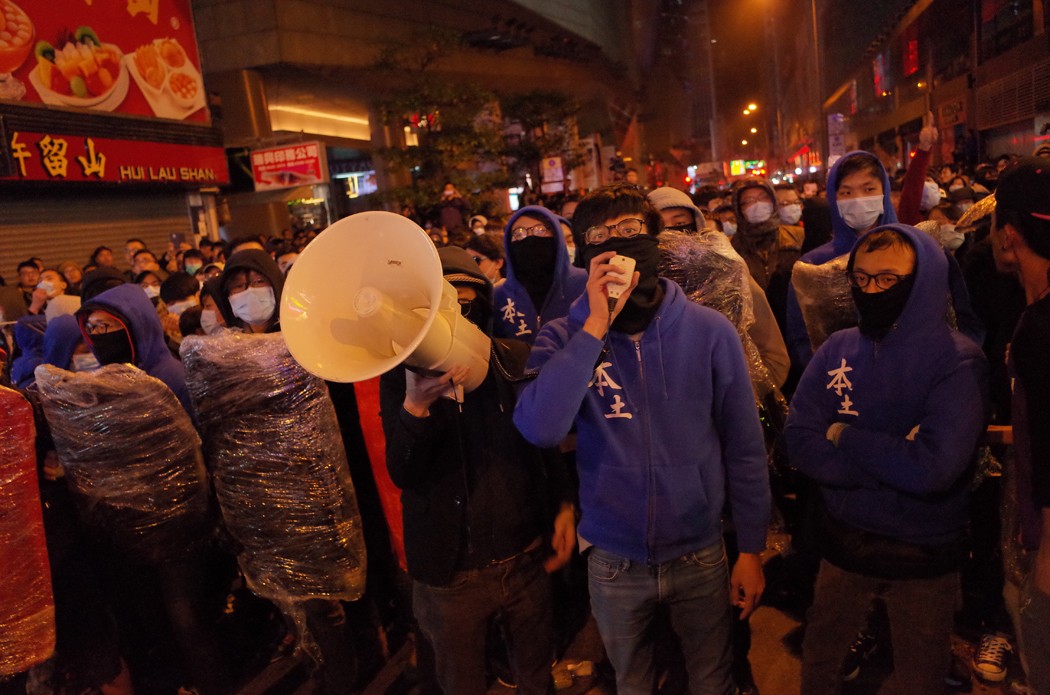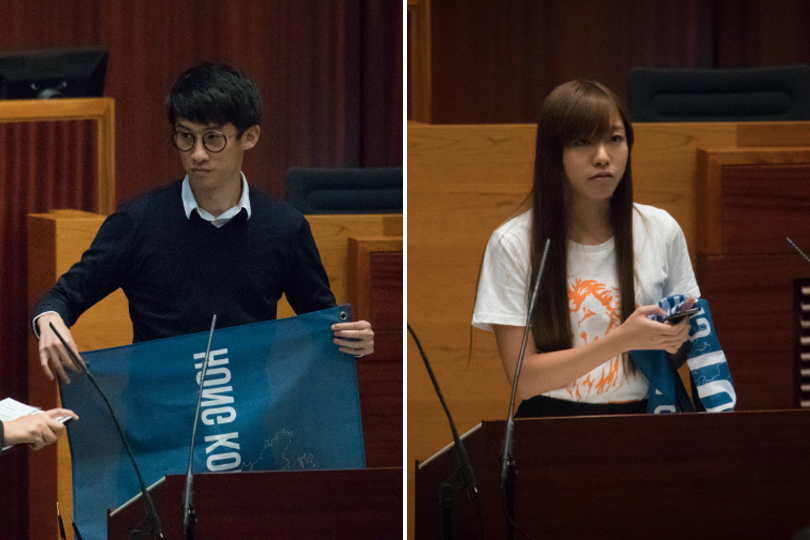Bar Association Chair Winnie Tam Wan-chi has warned against the use of violence in protests as it renders the cause of localists “self-defeating.” She also warned against frequent interference by Beijing in Hong Kong’s legal system.
At Monday’s legal year opening ceremony, Tam referenced the violent protests against police brutality in North Carolina and quoted US Attorney General Loretta Lynch, who said last year that any violent protest undermines the “very justice it seeks to achieve.”

‘Self-defeating cause’
Tam said Lynch’s remarks “aptly described the self-defeating cause” of localists who took part in the Mong Kok unrest, dubbed the “Fishball Revolution,” that erupted last February.
Calling the unrest “street warfare,” Tam said: “People who were once sympathetic to the cause of the young and powerless began to question the ‘No-bottom-line’ approach. The end failed to justify the means. Instead, the means defeated their very purpose.”
Similarly, she called localists Yau Wai-ching and Baggio Leung Chung-hang “LegCo separatists” and criticised them for defeating “the very purpose that their supporters entrusted them with… to bring about positive changes to the law.”
The duo were ousted from the legislature last November after displaying a “Hong Kong is not China” flag and pronouncing the full name of China in a manner that some considered offensive during an oath-swearing session.

“Many including their supporters have seen their acts of defiance of the law as gratuitous and deeply offensive,” Tam said.
Perceived interference
Despite her criticism of the disqualified lawmakers, she warned against perceived interference by Beijing in Hong Kong’s legal system in light of Beijing’s controversial interpretation of the Basic Law last November setting out the legal requirements of oath-taking by public officers.
“The perception of interference would be inevitable if the contents [of the interpretations] are so detailed, and the timing so urgent, as to directly impact on the outcome of a pending case,” Tam said.
She added that while “one can readily empathise with the political need” for Beijing to draw a clear red line to oust “LegCo separatists,” political expedience must not take precedence over the rule of law and judicial independence.
“Further, it must not be perceived to be given such precedence. On this issue, I venture to argue that public perception matters a great deal,” she said.

Emphasising the importance of judicial independence, Tam said: “Where there is no ambiguity… the court is best left to adjudicate the case independently, exercising its own power of interpretation.”
‘Apolitical channel of communication’
Tam described the Bar Association as an “apolitical channel of communication” between Hong Kong and China in the midst of “polarised political opinions” in Hong Kong.
“In order for the Bar to maintain its influence and contribute to the development of the rule of law on both sides of the border, our voice should be one that is fair and objective, politically aware yet fearless without being judgemental, and one that firmly adheres to the core values of the rule of law,” she said.
Tam was not the only legal heavyweight who defended judicial independence during Monday’s ceremony. Chief Justice Geoffrey Ma Tao-li said that judges have an “onerous” constitutional duty as they are given independent judicial power, while Secretary for Justice Rimsky Yuen said that Hong Kong’s judicial system “should be left to be dealt with at the Hong Kong level as much as possible.”
However, both dismissed concerns that Beijing’s interpretation affected the rule of law in Hong Kong.
